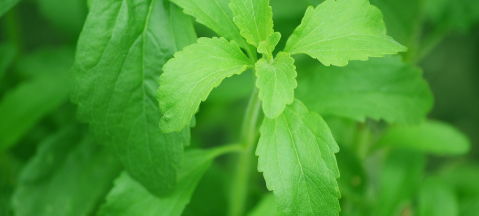Like many health trends and topics, we hear conflicting information about sweeteners vs. sugar… All. The. Time. With different sugar replacements falling in and out of the spotlight, it’s hard to make an informed decision about which one suits us best. Here’s a little crash course on the basics, so you can feel more confident about the sweetener you choose to use.
Sweetener categories
There are two broad categories of sweeteners, namely nutritive and non-nutritive. Nutritive sweeteners include honey, agave, molasses and sugar and contribute calories to your daily intake. They also flood the system with glucose, increasing insulin in the blood. This has the potential to increase weight and risk for obesity, increase unhealthy cholesterol (triglycerides), along with free radicals and inflammatory markers. It goes without saying that this needs to be avoided if you want to lead a healthy life. So, we turn to non-nutritive sweeteners that don’t spike our blood sugar or add unwanted calories, right? Well, the answer is not actually that easy.
Non-nutritive sweeteners – as the name implies – do not contain calories and therefore do not contribute to energy consumption. This seems better than sugar; however, it is not so simple. That’s because all non-nutritive sweeteners are not created equally, and still have a handful of cons alongside their obvious pros. Let us explain…
Five non-nutritive sweeteners
Five non-nutritive artificial sweeteners have been approved by the FDA:
acesulfame-K
aspartame
neotame
saccharin
and sucralose
The FDA has also approved stevia. While it isn’t non-nutritive, so to speak, it is a low-calorie sweetener that (most appealingly) is also natural, meaning that it hasn’t been man-made like the others.
Acesulfame-K is a combination of organic acid and potassium. It is 200 times sweeter than sugar. Whoa!
Aspartame and neotame are made up of amino acids (phenylalanine and aspartic acid) and are 160 to a whopping 13,000 times sweeter than sugar.
Saccharin is a combination of other sweeteners and is not metabolised by the body; that means it’s excreted without being absorbed. There was a health concern in the 70s when the sweetener was linked to tumours in rats; however, no link was drawn in humans and the product’s approval was reinstated.
Sucralose is 600 times sweeter than sugar and (like the above-mentioned sweeteners) is not absorbed by the body. It was approved in 1999 as a general-purpose sweetener.
ALSO SEE: Eating A Rainbow - Understanding Every Colour
A natural alternative
You might have heard of stevia, one of the most popular natural non-nutritive sweeteners out there. Surprisingly, the actual name “stevia” refers to an extract from the leaves of a South American plant called the Stevia Rebaudiana Bertoni. This extract is sold as a dietary supplement. However, what we think of and refer to as stevia is actually: stevia glycoside, which has been purified, unlike the whole stevia leaf extract. It is 200-300 times sweeter than sugar and was approved for use in 2008. It's also what we choose to use in our superfoods (in small amounts) to make them tasty.
Sweeteners and safety
Now let’s talk about the safety of non-nutritive sweeteners. They were given the name “GRAS” (generally regarded as safe) in relatively small quantities, but it’s difficult to quantify this amount given the scarcity of relevant research findings. What do we know? Firstly, excessive amounts could result in gastric discomfort, but we are not sure of the long-term effects of this intake. Secondly, opting for sweeteners may give individuals a false perspective on their calorie-intake, encouraging overeating. Sweeteners could also exacerbate an individual’s sweet tooth, causing an increased intake of sugary foods. As if that’s not enough, the Multi-ethnic Study of Atherosclerosis linked daily consumption of sweetened beverages to an increase in metabolic syndrome and diabetes – not ideal!
Our take-home message
…It’s pretty simple. Until we fully understand their effects on the body, it is recommended to avoid nutritive sweeteners (sugars) completely and to limit non-nutritive sweeteners to the more natural options in very small quantities. Like most things, sweeteners should not detract from a nutritious well-balanced diet and healthy lifestyle.
Add balance to your diet with 50 superfoods daily.


